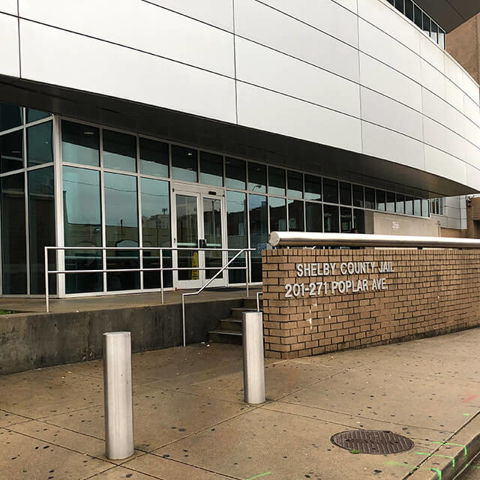The criminal justice system in Shelby County is murky, a new report says.
How many days does it take for a case to be taken care of? How many days are people incarcerated (if they can’t make bail) before their cases are taken care of? How often do people stay clean while they’re out on bail? How often are they re-arrested while out on bail? How often are people booked? How often do they ask for a trial?
Some answers came to these questions in a report issued Wednesday by a division of the Tennessee State Comptroller’s Office. That report was requested in February 2024 by Lt. Gov. Randy McNally (R-Oak Ridge) who wanted those answers (and more) about “issues in Shelby County,” specifically.
For the request, the comptroller’s Office of Research and Education Accountability (OREA) sent agents to Memphis. Over the past year, those agents interviewed about 70 people and spent about 100 hours at the Shelby County Criminal Justice Center. They conducted research, watched court proceedings, and analyzed datasets from at least 22 state and local entities.
From August to September, the agents gathered data on about 1,033 cases as they made their ways through the criminal justice process here. They watched 417 cases in General Sessions Court and 616 cases in Criminal Court. For the sake of equal comparison, they included 145 sample cases for the report that had similar data.
“The more than 1,030 cases observed represent a fraction of the cases heard in these courtrooms on any given day,” reads the report. “Across all eight General Sessions courtrooms that hear felony cases, more than 480 cases are heard daily. In the nine Criminal Court courtrooms, this number rises to over 500 cases heard daily.”
Here’s some of what they found in Criminal Court:
• Half of cases were completely through court (or disposed) in two months.
• A quarter of cases were disposed in 37 days or fewer.
• Nearly all the cases were disposed within 266 days, or nine months.
• Shelby County had the highest number of open felony charges (2,335) at the time, double the Nashville count of 1,024.
• Of the 95 defendants OREA watched, only seven re-offended while on pretrial release (bail or free release).
• A majority (60 percent) of felony charges did not change at the end of a case from 2018 to 2023. The remaining charges either decreased (about 20 percent) or increased (about 21 percent).
Here’s some of what they found in General Sessions Court:
• Over half of the cases were dismissed.
• A quarter of cases were disposed with a guilty plea.
• About 10 percent of cases were bound over to a grand jury.
However, no one in Shelby County is collecting this information. These observations are from a small sample size from a small group of OREA agents.
Without aggregate data, it’s impossible to judge the efficiency, throughput capacity, or overall health of the Shelby County Justice system. The OREA group thinks someone here should be responsible for gathering that data and sharing it with the public.
“The result is that the public cannot assess overall, aggregate trends and patterns; the public cannot see the big picture,” reads the report.
The group offered a list of detailed recommendations to improve the situation here, but it is unknown what next step may come in the situation.
Read the full report below:




 Chip Chockley
Chip Chockley  Sycamore Institute TN
Sycamore Institute TN 
 Facebook/Free Hearts
Facebook/Free Hearts